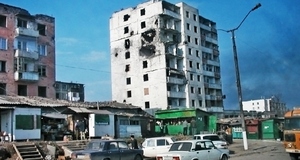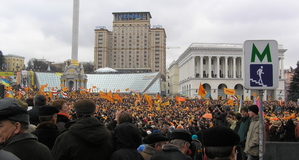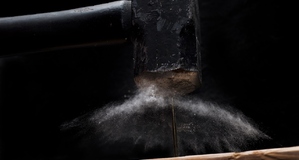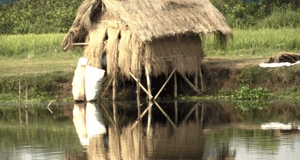From Proto-State to Para-State Accountability: Russian Political Regimes Under Yeltsin, Putin, and MedvedevIt does not even take much cynicism to hold that regional governance became gradually reduced to a level of quasi-feudal dependence on Moscow, in which financial benefits and political projects hang on the benevolence of the presidential administration. The impact of Putin's strengthening of the 'power vertical' was not limited to administrative governance in the Russian federal order. The ensuing political regime of an assertive central government also deeply influenced economic governance in Russia and especially the relation between the government and the realm of oligarchs as created by Yeltsin's political regime. Following Putin's recentralization policies, “continued existence and effectiveness of property rights [were] conditioned on good will with the government and those who dominate it" (Wälde 2008: 64). Put bluntly, Putin allowed the Yeltsin-era oligarchs to keep their money as long as they didn't turn defiant, i.e., pursuing corporate and investment policies contrary to governmental priorities or, worse still, use their leverage power to meddle in politics. The now (in)famous Yukos affair is a case in point. Mikhail Khodorkovsky's private Russian oil company was destroyed in what Thomas Wälde describes as a "rapid, manipulated and contrived auction which allowed state company Rosneft to purchase most of Yukos’ assets at a bargain price" (Wälde 2008: 74).Yuko's asset stripping arguably was triggered by Khodorkovsky's attempt of financing Putin's political opposition and overtly displaying a critical political stance. It was his economic power linked to political opposition that constituted a daring combination during Putin's process of re-privatization that in effect sought to turn back the rampant oligarchic capitalism of the Yeltsin era, replacing it by a centralized 'bureaucratic capitalism' (Medvedev 2003). While this still entailed a governmental administration being intertwined with the business elite (favoritism and corruption being inherent side effects of such an informal alliance), the realm of the business elite explicitly was meant to keep its nose out of politics. Boris Berezovsky and Vladimir Gusinsky were further examples of a selective application of the judiciary's fist against politically motivated oligarchs (Stuermer 2008: 31). External factors such as break-away tendencies in the North Caucasus (cf. Chechen war under Putin) and 'color revolutions' in Eastern Europe further contributed to an overall 'siege mentality' on the part of Putin's government (Sakwa 2008: 883). In the nature of things, such a political regime characterized by the resurgence of the 'strong state' could not fail to have a particular impact on democracy and civil society: “Sovereign democracy was a theory of tutelary democracy, in which the free play of societal political competition was restrained (as analysed by Vladimir Gel’man in this collection), but the principles of pluralism were not repudiated", Sakwa (2008: 882) formulates. A pluralist capitalist Russia, in other words, was allowed to thrive as long as society played by the rules of the Putin game (called 'Sovereign democracy', the concept of which is technically a teleology, but turned out to be a cynic oxymoron in Putin's reading). Domestically, Putin could reap the fruits of the transition reforms, whose effect kicked in with a natural time lag, at a time when Russia reported higher oil revenues due to globally rising energy prices (Aslund 2004). Putin thus had taken over office in an economically most favorable window of opportunities. Putin's popularity (and Yeltsin's unpopularity) is thus also to be explained by the respective economic circumstances under which each presided (Treisman 2011). While opinion polls have confirmed a certain popular legitimacy for Putin's political regime that was associated with a positive economic performance as compared to the Yeltsin years and a general perception of the restoration of 'order' and 'stability' (Rose et al. 2006, p. 181), the characteristics of the political regime itself speak volumes about the extent of democracy and long-term civil society participation, leaving short-term regime legitimacy on the basis of economic performance aside. Putin's regime increasingly showed signs of “trying to find para-institutional answers to para-political problems” (Sakwa 2008: 884), while the political opposition was reduced to the role of a 'parastatal' one in a 'virtual' democracy (March 2009)2. The ensuing patronage politics in a 'managed democracy' had an unmistakable impact on Russian society: A political regime characterized by compromise and collusion with regional leaders and the business elite (while the upper hand always was meant to remain with the centralized state level), genuine political parties and civil society were circumvented (cf. also Politkovskaya 2004). While Putin effectively fought against Yeltsin's legacy of a segmented regionalism, he did not (and showed no interest to) overcome Yeltsin's legacy of a political regime being insulated from popular accountability. It is precisely this climate of an alienated civil society and a centralized quasi-authoritarian state that André Gerrits rightfully calls a “pattern of democratic regression” (2010: 34). The Political Regime Under Medvedev: Power Tandem or Puppet President?When Dmitri Medvedev assumed the office of president on 7 May 2008, he was facing the political heritage that his predecessor Putin had left behind- the heritage of a particular political regime characterized by “para-constitutional innovations” and “para-political practices” (Sakwa 2008: 893; cf. also Sharafutdinova 2009) as described above, to which any new president wanting to alter the political regime needed to respond by stressing the need for the respect and actual implementation of the rule of law and the reliance on formal constitutionalism. It was precisely this realization that made Medvedev declare at the beginning of his presidency his willingness to fight 'legal nihilism', to allow for economic and personal freedom, including the freedom of expression, to reduce red tape and 'humanise' the country's judiciary (Sitnina 2008). These were words that were warmly embraced by the West, creating high hopes in Medvedev's presidency to liberalize the country, breathe in the genuine spirit of the rule of law and create an open and liberal political regime. Medvedev's plans to modernize the country economically were expressed by the focus on the four ‘Is’: institutions, infrastructure, innovation and investment." (Sakwa 2008: 896). He uttered declarations to boost the economy, improve the investment climate, improve health care and education, fight corruption and ensure trust in the judicial system again, kickstarting a "democratic modernization" (Aron 2010b: 2). But not only was he quickly said to lack the strongman-aura of Putin, it also became gradually clear that a considerable amount of power still lay with now prime minister Putin: “While Medvedev enjoyed enormous constitutional power, the prime minister brought with him a great store of political capital. Certain tutelary powers, and thus governmental sovereignty, were transferred to the premier’s office. While formally the two-term limit was observed, the spirit of the provision was undermined." (Sakwa 2008: 890). This indirect dependence on Putin was undermining the promised political regime, rendering Medvedev's indirect criticisms of his predecessor's policies a shadow-boxing exercise, revealing a "glaring mismatch between words and deeds" (Aron 2010b: 3) with the passage of time. A yawning capabilities-expectations gap gradually reinforced the impression of Medvedev having become a pale puppet president, while the real power had been subtly transferred to the prime minister's post, an evolution creating a particular political regime on its own (that of the Medvedev-Putin power "tandem": Remington 2009: 2f.), while its impact on politics and society strikingly resembled that of the Putin era. Medvedev‘s proclamation to fight lawlessness in practice clashed with reality when he did not utter a word about Khodorkovsky being sentenced to a 22-year long imprisonment on alleged tax evasion and fraud in what has been criticized as a politically-motivated show-trial (Weiss & Pettengill 2011: 12f.). He also did not initiate an investigation into the dubious murders of journalists and human rights activists such as Anna Politikovskaya or the lawyer Sergei Magnitsky, failing to re-establish much-needed trust into the judicial system (Parfitt 2011). From the beginning of Medvedev's presidency, critics had held that Putin still had remained the political master mind. From a regime stability/ regime-preservering point of view, the public introduction of the Putin-Medvedev tandem served the purpose of ensuring the continuation of the same policy priorities as under the former Putin administration: "The construction of a two-headed leadership was designed to maintain the power of the current elite, and to avoid internal division, while formally complying with democratic procedures." (Gerrits 2010: 37). The apparent attempt to prevent decisive breaks with former political regimes, however, had the side effect of rendering any genuine democratic power transition a window-dressing exercise and even further cementing the societal perception of the citizens' absolute inability to cause policy changes. The sad picture the political regime created under Putin and that Medvedev did not manage to alter is one of a Russian state characterized by a censored press, a censored television, a corrupt executive, a rubberstamping legislative and a hardly transparent and fair judicial system.Continued on Next Page » Suggested Reading from Inquiries Journal
Inquiries Journal provides undergraduate and graduate students around the world a platform for the wide dissemination of academic work over a range of core disciplines. Representing the work of students from hundreds of institutions around the globe, Inquiries Journal's large database of academic articles is completely free. Learn more | Blog | Submit Latest in Political Science |


















